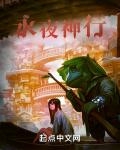Chapter 198: The legitimacy of the dynasty? Only the Han and Ming dynasties had legitimate rule!
With the implementation of the Single Whip Law, Fang Keqin's reputation became polarized.
In the eyes of scholars and officials, he was the greatest traitor in history, a man full of evil, and bad to the core.
But in the eyes of the people, he is a unique and honest official.
The people even took the initiative to build a shrine for Fang Keqin.
The so-called living ancestral hall refers to an ancestral hall built for living people.
Those who have not made great achievements cannot bear it.
If a shrine is built for an ordinary person while he is still alive, it will shorten his lifespan.
But Fang Keqin has done so many practical things that he can bear it.
Although Fang Keqin was carrying out the One Whip Law in accordance with the Emperor's orders, his achievement was unique as he was able to accomplish things to such an extent.
Fang Keqin felt the endless power of merit, and these merits brought his strength and realm to an unprecedented level.
This also made Fang Keqin more determined to follow his own path.
For a Confucian scholar like him, the greatest pursuit is to leave his name in history and pass on his fame through the ages.
And now, the opportunity is right in front of us.
How can I give up so easily?
Fang Keqin had long regarded his life as something outside of himself.
…
Yingtian Prefecture.
Inside the palace.
Su Che looked at the report in his hand and couldn't help but smile: "The common people spontaneously built a shrine for Fang Keqin?"
"Since ancient times, those who were built ancestral temples by the people were all capable officials."
"Fang Keqin has done a lot of practical things while making up for his crime."
“Hmm…”
Su Che looked at the contents of the report and suddenly thought of something, and his eyes lit up.
"Build an ancestral hall and hold a ceremony to worship..."
"I can build a shrine for the heroes of the Ming Dynasty, or even a wall for martyrs, so that everyone can remember their contributions!"
Since ancient times, the most important affairs of a country have been sacrifices and war.
War and sacrifice are two very important things.
War determines the life and death of a country.
And sacrifice is also very important.
This is a question of ideology.
People in this world value not only material things, but also consciousness.
Choosing the right sacrificial target can consolidate national unity to a great extent.
What are we worshipping now?
A Confucian saint.
Ancient sages.
Gods of heaven, earth, mountains and rivers.
Offering sacrifices to these will also have an effect, but the effect is not as direct, because there are too many people offering sacrifices to them. The previous dynasty offered sacrifices to them, and the current dynasty also offers sacrifices to them, so the effect is not as good.
In that case, why not change the target of the sacrifice?
The Ming Dynasty expelled the Tartars and restored China. How could such great achievements not be commemorated?
Su Che has a very strong ability to take action. He will do what he decides to do immediately.
At the court meeting that day, Su Che announced a new decree. He decided to commemorate the martyrs of the dynasty and those who contributed to the founding of the country.
As soon as these words were spoken, the whole court was in an uproar.
All the ministers were furious.
These days, there are decrees every now and then, which makes these civil officials feel exhausted and exhausted. It’s only been a few days since we had a peaceful life, and here comes another one? ?
Moreover, the ones that Your Majesty is going to offer sacrifices to are actually the noble and military men of this dynasty?
Why?
Are these people worthy of being compared with saints and sages and enjoying the power of vows generated by sacrifices?
Where does that put your face!
Many ministers immediately stepped forward to dissuade them, even though they would be punished for doing so, they still did not hesitate.
"Your Majesty, the ancient saints and the gods of mountains and rivers are all worshipped by later generations... Now those nobles are still alive, how can we worship them?"
"Your Majesty, sacrifice is a national event and cannot be decided so lightly. Please think twice before acting."
"Your Majesty, how can you offer sacrifice to yourself? Where does this make sense?"
"Your Majesty, the nobles are already arrogant. If we continue to offer sacrifices to them, there may be big problems. I hope Your Majesty will consider this matter carefully."
Listening to the constant dissuasion of many court officials, Su Che frowned impatiently. He stared at the civil officials and said in surprise: "I will not only sacrifice those generals and soldiers, but also civil officials. Why are you objecting so quickly?"
As soon as these words came out, many ministers looked at each other in bewilderment - ah? They are also involved? ?
This is a bit embarrassing.
They advised too quickly, and now they were bound to suffer the consequences. They were all helpless. Why did His Majesty gasp for breath while speaking, and not finish his words in one breath? They had to try their best to make up for it!
There are definitely many ministers who are thick-skinned and can get to this position. At this moment, many people coughed and changed the subject, saying again:
"Your Majesty, we were reckless. If you think about it carefully, it is not impossible. Expelling the Tartars and restoring China are meritorious deeds that are certainly worthy of sacrifice!"
"Since the Northern Song Dynasty, the country has been in pieces. No one has been able to unify the country for so many years. The Ming Dynasty has conquered the north from the south. This is unprecedented in history. Such a feat is indeed worthy of sacrifice."
There were also some who were more thin-skinned, and their faces turned red when they heard these two-faced words from their colleagues.
I refused before because it didn't benefit me, but when the benefit really came to me, it was different.
However, there is actually a problem here.
That is the question of dynastic legitimacy.
Since we are offering sacrifices to these people...
Because of expelling the Tartars.
So what regime did the Ming Dynasty inherit?
This issue has been discussed a long time ago.
Zhu Yuanzhang's attitude was very firm at the beginning.
His regime was a thoroughly Han regime.
It has nothing to do with the Yuan Dynasty.
After all, his entire family died under the rule of the Yuan Dynasty.
My parents, four brothers, two sisters, three nephews, my uncle and his four sons and seven grandchildren are all dead, leaving only me and a nephew.
Under such circumstances, would Zhu Yuanzhang recognize the rule of the Yuan Dynasty?
This is simply impossible.
but.
Historical records.
Zhu Yuanzhang said: I was originally a commoner from Huaiyou, and when the violent army suddenly arrived, I mistakenly entered it. Since the Red Turban bandits started the rebellion, many counties in the north and south have been lost, so the Ming Dynasty took them.
This set of statements also became the argument used by many people to attack Zhu Yuanzhang, saying that he labeled those who revolted with him as evil bandits and rebels.
But in reality, this is just a rhetoric for the legitimacy of the regime.
In order to make the country's political power reasonable, Zhu Yuanzhang prepared several sets of rhetoric, and this was just one of them.
There are both pro-Yuan and anti-Yuan ones, which can be flexibly selected in different occasions.
The so-called "obedient citizens of the Yuan Dynasty" is actually not used very often.
This set of statements is more often used to describe the recovered former Yuan Dynasty citizens and the Mongols.
Under the rule of the Yuan Dynasty, not all the rebels were Han Chinese, there were also many Mongolians.
In order to quickly win back these people and conquer these areas, this set of statements is indispensable.
besides.
The issue of succession to state power is also a problem.
What dynasty did the Ming Dynasty succeed?
Zhu Yuanzhang recognized the Yuan Dynasty's regime and inherited it, so he could not over-publicize the issue of expelling the Tartars.
Now a minister has raised this issue again.
Where did the legitimacy of the Ming Dynasty come from?
Facing this question, Su Che just smiled and said calmly: "Haven't I already given you the answer?"
"Ah?" The minister who asked this question was stunned for a moment, and then he was a little unresponsive: "Did your majesty give an answer?"
"Yes." Su Che said calmly: "I canonized the Southern Sect's Kong family as Wenxuan Gong. Didn't I tell you the answer?"
When these words came out, many ministers looked at each other in bewilderment.
They really didn't expect that His Majesty would give such an answer!
Nan Kong was canonized as Duke Wenxuan, and this title originated from the Tang Dynasty. In other words, Your Majesty believes that the Ming Dynasty's political power originated from the Tang Dynasty?
But the problem is, this is not even remotely related...
The time span is really too long.
You're making such a big fuss, aren't you afraid of getting your balls pulled?
Su Che glanced at the court officials. His meaning was very straightforward. These matters are for you to consider, not for us. If the emperor has to consider everything, then what is the point of keeping so many ministers?
Su Che thought for a moment and continued, "Or you can inherit the Han Dynasty! Then inherit the Han Dynasty!"
When these words were spoken, all the court officials were paralyzed!
Is it so casual??!
Big man? ?
Forget about the Tang Dynasty, but the Han Dynasty is here?
How far back does that go?
The Han Dynasty has been dead for many years!
How can we find any traceback?
It's a chore.
Many ministers once suspected that it might be because His Majesty saw that they disliked the Tang Dynasty and it was difficult to trace and find the connection between the two, so he gave them a more difficult choice and asked them to choose the lesser of the two.
In fact, these ministers were narrow-minded. Su Che really didn't have this idea. He smiled and said slowly: "Why did I say that the Ming Dynasty inherited the Han Dynasty's regime? This can be understood."
"Since ancient times, the only two who have managed to rule the country properly are Han and Ming!"
As soon as these words were spoken, all the ministers in the court widened their eyes, all of them were confused. What did these words mean?
Even Zhu Biao, who had been silent next to Su Che , was stunned for a moment.
The only two who can rule the country in a righteous way are Han and Ming!
What a domineering statement!
He simply ignored all other dynasties, believing that they had gained power in an illegitimate way and were not worthy of being compared with the Ming Dynasty.
Even the Tang Dynasty, which we were just tracing back to, was discriminated against.
All the ministers listened to Su Che's speech carefully.
Su Che said slowly: "What is the righteous way to gain a country? When a common man starts a rebellion, he has no suspicion of relying on his power. When he fights against violence for the people, he has no intention of seeking divine weapons. Therefore, since the First Emperor, the only two who have gained a country righteously are the Han and Ming dynasties."
Several standards for determining whether one has gained a country's legitimacy.
First, a common man starts a rebellion without relying on the power of the emperor:
This means that the founding emperor must be born into a commoner family, and his success in achieving hegemony depends entirely on his personal strength, and has nothing to do with his family background or the protection of his ancestors.
Before he became famous, Emperor Gaozu of Han, Liu Bang, was just a headman of Sishui Pavilion in Pei County. Emperor Taizu of Ming, Zhu Yuanzhang, came from the lowest level of society, had been a monk and begged for food. Both of them were truly "common people who started rebellions."
In contrast, during the Qin, Jin, Sui, Tang, Song and Yuan dynasties, the founding emperors were either from noble families or aristocratic families, or had already held important positions before seizing power. They did not establish the new dynasty by their own efforts, and none of them can be considered as "common people starting a rebellion."
Second, to eliminate violence for the people, without any intention of pre-seeking the artifact:
This means that the regime to be replaced must be a tyranny that has long lost the support of the people, and the original intention of the uprising is to overthrow corruption, eliminate violence and bring peace to the people, rather than to realize personal ambitions.
Emperor Gaozu of Han, Liu Bang, overthrew the unpopular and tyrannical Qin Dynasty, while Emperor Taizu of Ming, Zhu Yuanzhang, overthrew the Mongol Yuan Dynasty, which was a foreign invasion. Both of them had the original intention of eliminating violence for the people and rebuilding the country. If their original intention was "righteous", then naturally they would be "righteous" when they gained the country.
This was not the case with other dynasties, either their motives were impure or their means were improper, and their legitimacy could not be compared with that of the Han and Ming dynasties.
In short, the Han Dynasty and the Ming Dynasty met all the conditions for "the most righteous way of governing a country", while the Qin, Jin, Sui, Tang, Song, and Yuan dynasties each had their own "unrighteous" aspects.
After Su Che slowly explained his reasons, many ministers in the court began to breathe heavily!
This is a completely new term.
A more far-reaching statement.
Before.
Zhu Yuanzhang went to great lengths to find the legitimacy of his dynasty.
Because they did not recognize the Yuan Dynasty.
Then we have to acknowledge the Song Dynasty.
But it was used by Liu Futong and his gang in the Song Dynasty.
Whether it was Liu Futong or Han Lin'er, they were both dead.
This is going to be a difficult matter.
After much thought, one can only reluctantly acknowledge the Yuan Dynasty's legitimacy.
But this raises a question. Since we acknowledge the Yuan Dynasty's legitimacy, then aren't Zhu Yuanzhang and his gang traitors?
So Zhu Yuanzhang thought about it and finally came up with the "Theory of Palace Prosperity and Blessings" to solve the problem of the legitimacy of his dynasty.
The so-called prosperity of the palace brings blessings.
It is also called "The first to take the initiative must be punished, and the prosperous palace will be blessed."
Zhu Yuanzhang divided the uprising armies since ancient times into the chief rebels and the palace rebels.
The initiators of rebellion are those who start trouble first. These people will be punished by heaven. For example, the initiator of the anti-Qin movement was Chen Sheng, and the initiator of the anti-Yuan movement was Liu Futong.
Liu Bang and himself were the ones who joined in halfway and saved the people from disaster.
——This means “Misfortune comes to the cause of chaos, happiness flourishes in the palace”.
To put it simply, no matter how turbulent a dynasty is, as long as its framework stands, we cannot say that the world is in chaos.
Anyone who dares to rebel at this time, no matter for what reason, will cause the world to fall into chaos and must be condemned, and God will punish him.
Chen Sheng and Wu Guang of the Qin Dynasty, the Yellow Turban Army of the Eastern Han Dynasty, An Lushan of the prosperous Tang Dynasty, Huang Chao of the late Tang Dynasty, and the Red Turban Army of the Yuan Dynasty, all of these people who took the lead in rebellion all ended up badly, while the prosperous Han and Tang dynasties generally had long reigns, which has historical basis!
In short, no matter whether you can survive or not, being the "chief rebel" is bad!
The first group of rebels will only serve as the king's pioneers!
It is not easy to find the flaws in Dian Xing's theory of blessing.
This can be said to be a pretty genius idea.
However, this set of arguments is of no use at all.
If the theory of "the prosperity of the palace brings happiness" was really useful, there wouldn't have been so many people rebelling in the Ming Dynasty, and the Ming Dynasty wouldn't have been destroyed.
This set of arguments even benefited the later Qing Dynasty.
Instead of using the so-called "theory of prosperity brings blessings", it is better to use "only Han and Ming dynasties ruled the country in a righteous way"!
This new set of statements is even more favorable and straightforward than inheriting the legal system of the Tang Dynasty.
It can be said that it has opened up a whole new legal inheritance!
At the same time, this also elevated the legitimacy of the Ming Dynasty to an unprecedented level!






